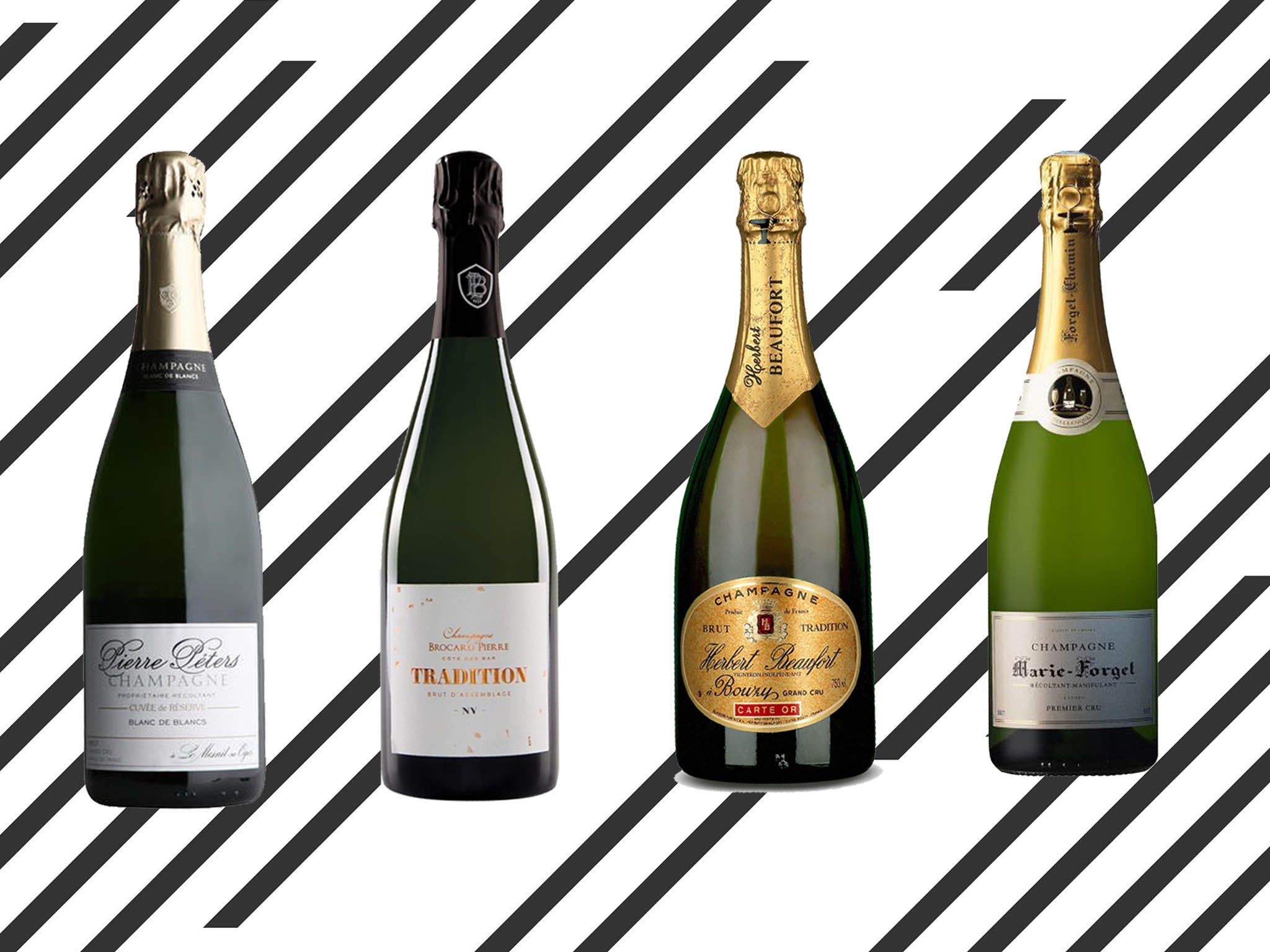The Independent's journalism is supported by our readers. When you purchase through links on our site, we may earn commission. Why trust us?
10 best grower champagnes for fizz with personality
Independent family vineyards have been handpicking grapes to make their signature vintage wine for generations, we've chosen some favourites from the region

When it comes to Champagne, the big names get most of the airtime. We’ve likely all heard of Moët & Chandon, Veuve Clicquot and Laurent-Perrier, however it will come as no surprise to learn that these top brands spend a lot on marketing. While not necessarily a bad thing, it might mean you’re missing out on some of the hidden gems from smaller producers.
Grower champagnes then, or farmer fizz as it’s sometimes affectionately referred to, is wine from producers who grow the grapes themselves. Much like bean to bar chocolate, the farmers have tended to the grapes, right through to bottling the wine – retaining complete control in the process. Working this closely with the fruit can arguably lead to better champagne, or certainly more diverse, terroir-led flavours – and often at a fraction of the cost.
Over the past few years, retailers have seen interest in these grower champagnes, well grow – with The Whisky Exchange (named UK Champagne & Sparkling Specialist of the Year at the 2019 Decanter Retailer Awards) seeing sales up 11 per cent vs last year.
There are actually more than 300 wine-producing villages in Champagne, with the cru designation, in theory, ranking those areas as “best” (grand cru) to worst. The problem, however, is that these areas were decided on at the turn of the 20th century and have remained frozen in time ever since. Even the most highly praised vineyard, situated slightly outside the cru-designated zone, will never be able to add this label to their wines.
In fact, to ensure a perfectly balanced bottle of fizz, many producers prefer to blend grapes from various terroirs (plots of land), which would also mean they couldn’t be labelled with the most prestigious title. As such, this isn’t necessarily the best way to help choose your champagne. Instead, we’d suggest thinking about what flavours you prefer. Do fresh, fruity styles make your heart flutter or is it the biscuity, toasted more savoury styles that make you salivate? We’ve found a good selection wherever you are on the champagne spectrum.
On this occasion we’ve decided to focus solely on white champagne (although you can also find rosé grower styles), with all coming in at under £50. And you’ll be pleased to know, it’s not just specialist wine retailers stocking these special bottles, many supermarkets offer great value options as well.
You can trust our independent reviews. We may earn commission from some of the retailers, but we never allow this to influence selections, which are formed from real-world testing and expert advice. This revenue helps to fund journalism across The Independent.
The verdict: Grower champagnes
One of the main benefits of choosing a grower champagne over a more established name is to really taste the differences in terroir. With this in mind, we’ve awarded our Best Buy to Champagne Geoffroy Expression premier cru brut Champagne which we think is a really exciting find with a truly unique flavour profile.
